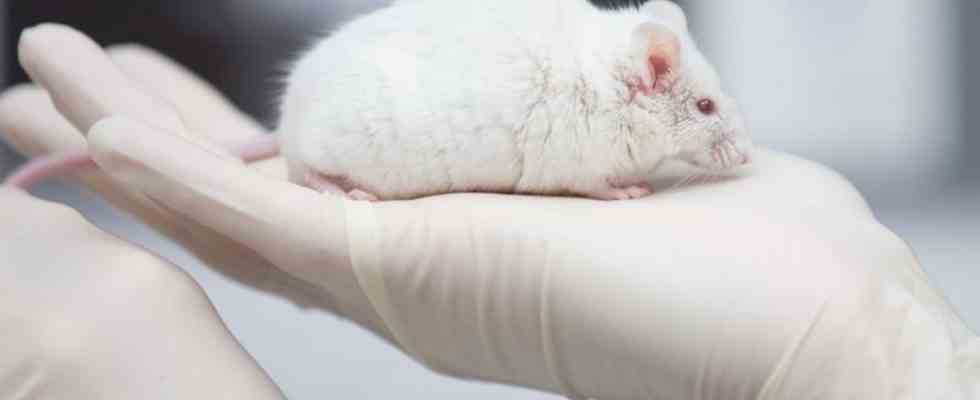reproductive biology
Without a mother’s genome: mouse babies with two fathers
In Japan, researchers have created viable mice with two biological fathers. photo
© Friso Gentsch/dpa
Laboratory-created baby mice with two daddies have recently garnered a lot of attention. The researchers have now presented their results in a renowned specialist journal.
In Japan, researchers have created viable mice with two biological fathers. The team led by Katsuhiko Hayashi from Osaka University converted skin cells from male mice into – then practically female – egg cells in several steps in the laboratory, as the researchers write in the journal “Nature”. These oocytes were fertilized with sperm from other male mice. The resulting embryos were then carried to term by a surrogate mother. From a genetic point of view, the offspring has two fathers but no mother.
Hayashi had already presented the results last week at a specialist conference in London. The team has now published its data in a peer-reviewed journal. Mice with two biological mothers were introduced several years ago.
The Japanese researchers’ approach is not yet particularly efficient. Of 630 embryos transferred to surrogate mothers, only seven were born as live mouse babies. These all became adults, and it was also shown in one female and one male specimen that the two-father mice are capable of reproduction, as the scientists around Hayashi write.
Technology cannot be transferred to humans
Jonathan Bayerl and Diana Laird from the University of California in San Francisco write in a “Nature” comment that the work presented now “opens new paths in reproductive biology and reproductive research”.
The technology is still far from being transferred to humans. “There are big differences between mice and humans,” Hayashi said at the recent London conference. Nevertheless, the work raises various questions – for example, whether gay couples could ever have children together with genes from both men.
The approach taken by Hayashi and his team could theoretically be an approach to enabling gay couples and transgender people, for example, to have children of their own at some point in the future without the ethical and legal problems associated with donor eggs, write Bayerl and Laird.

